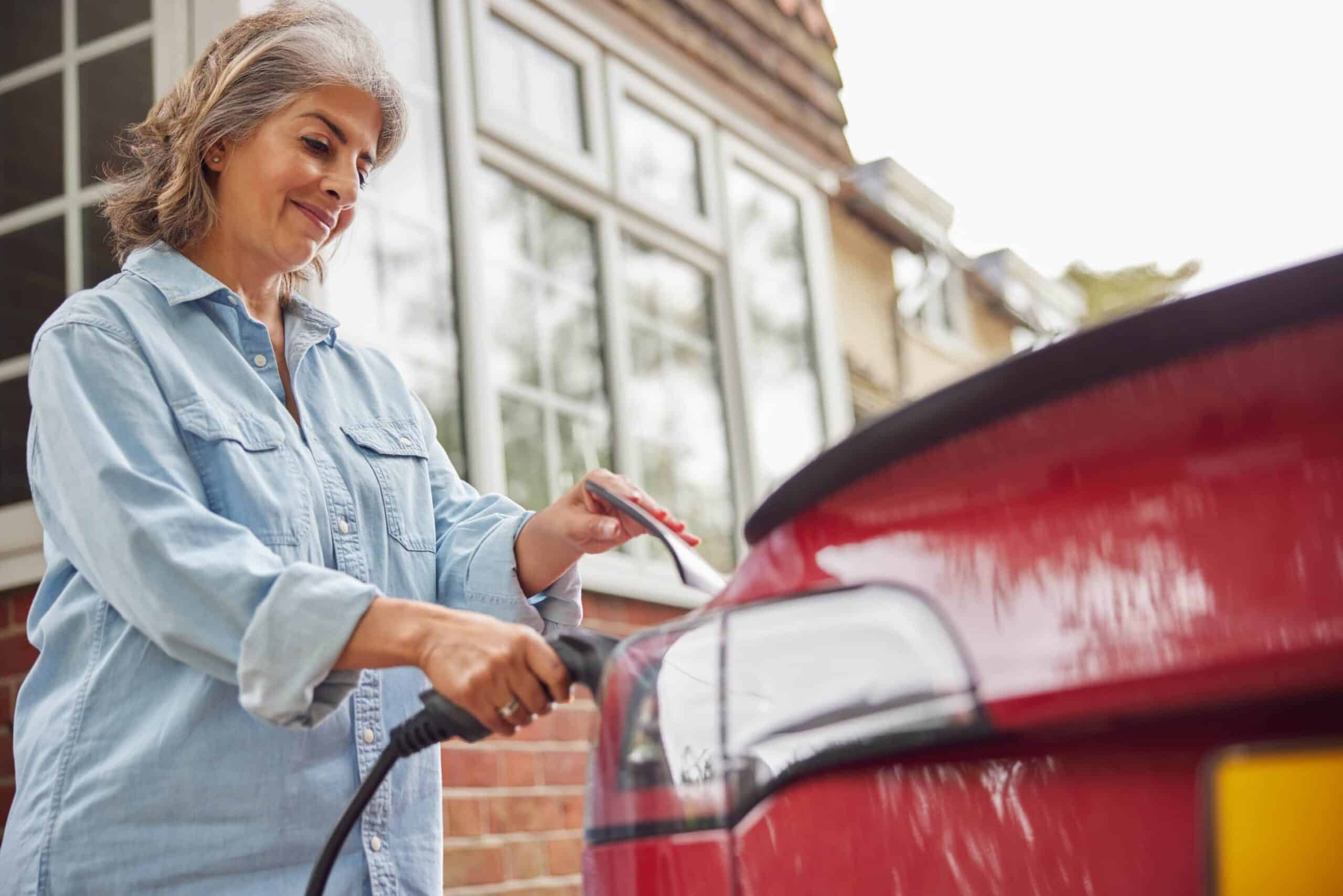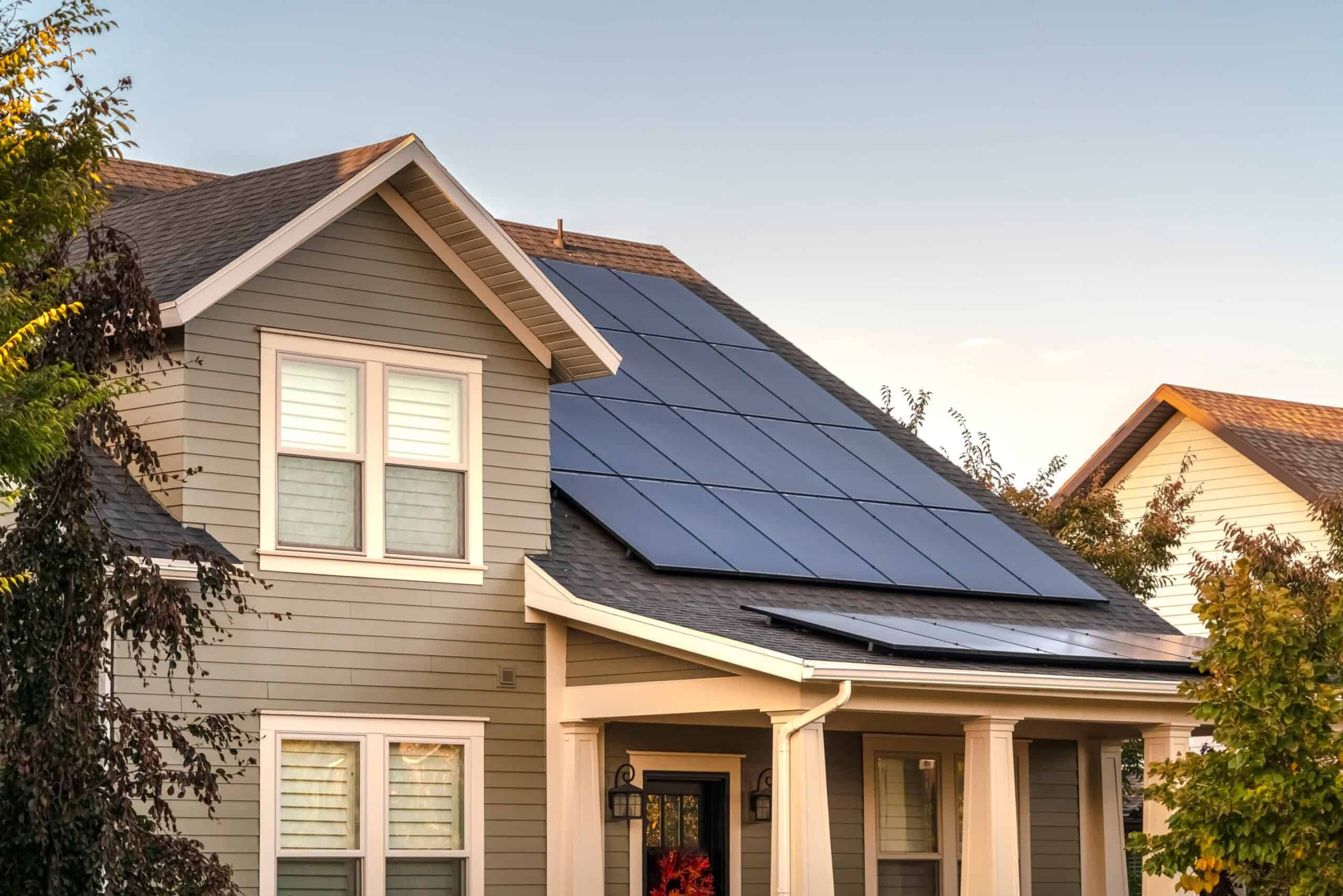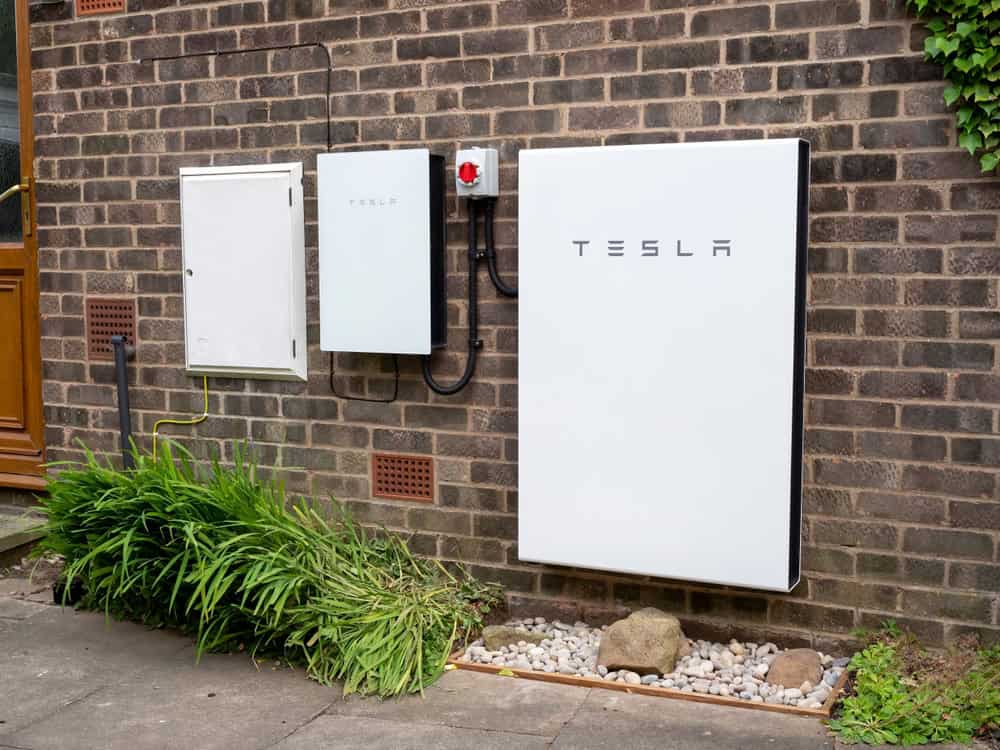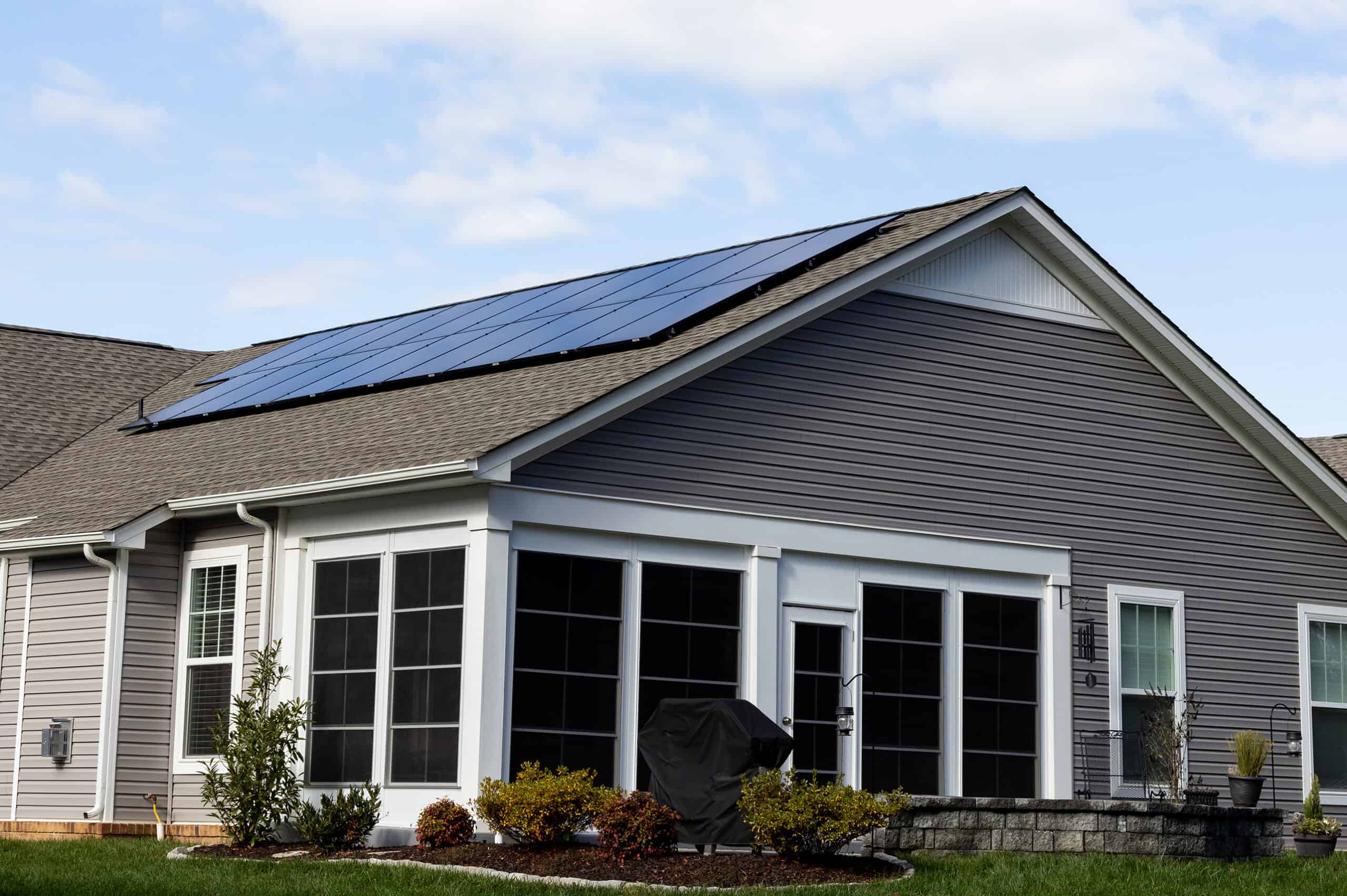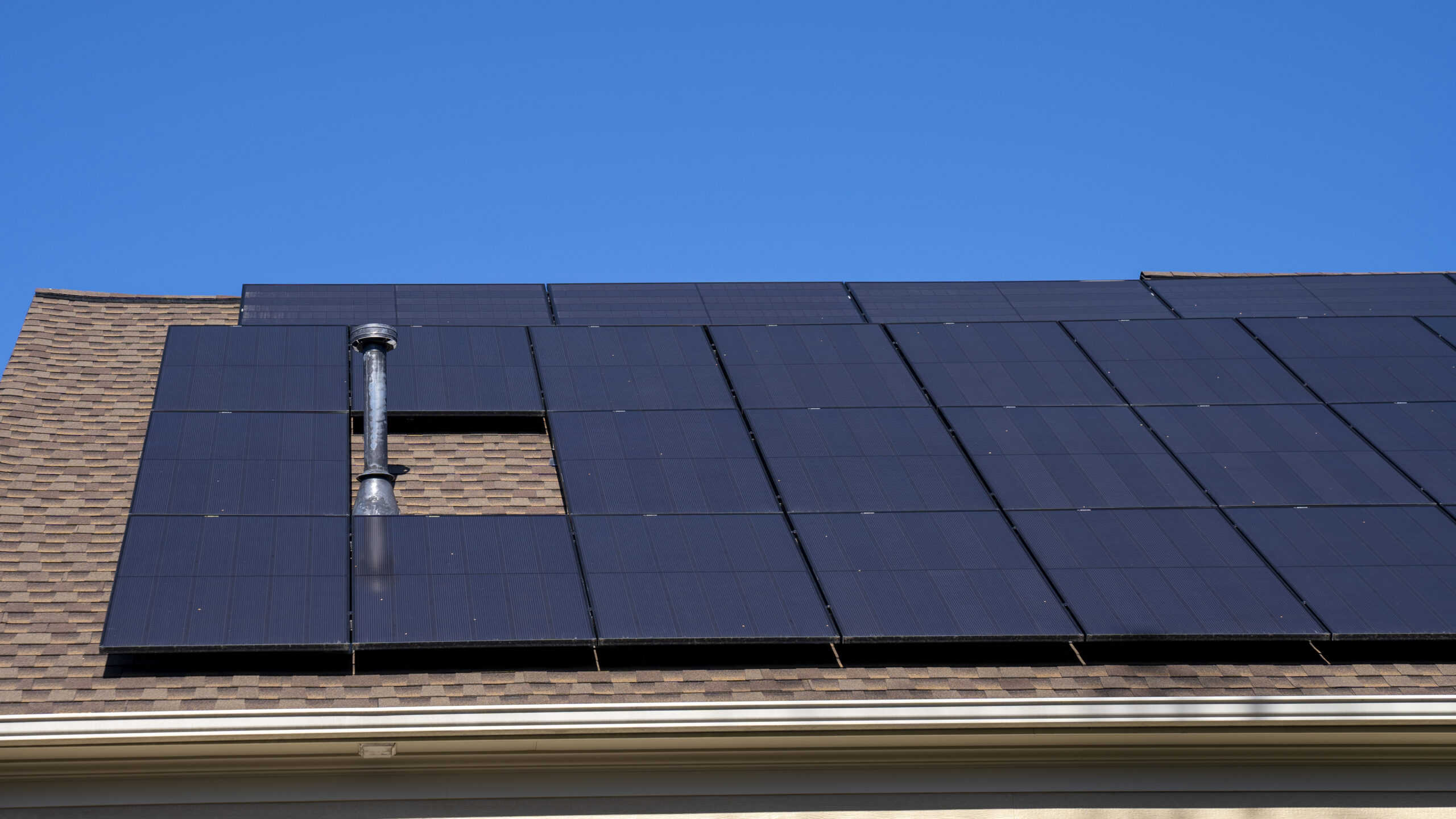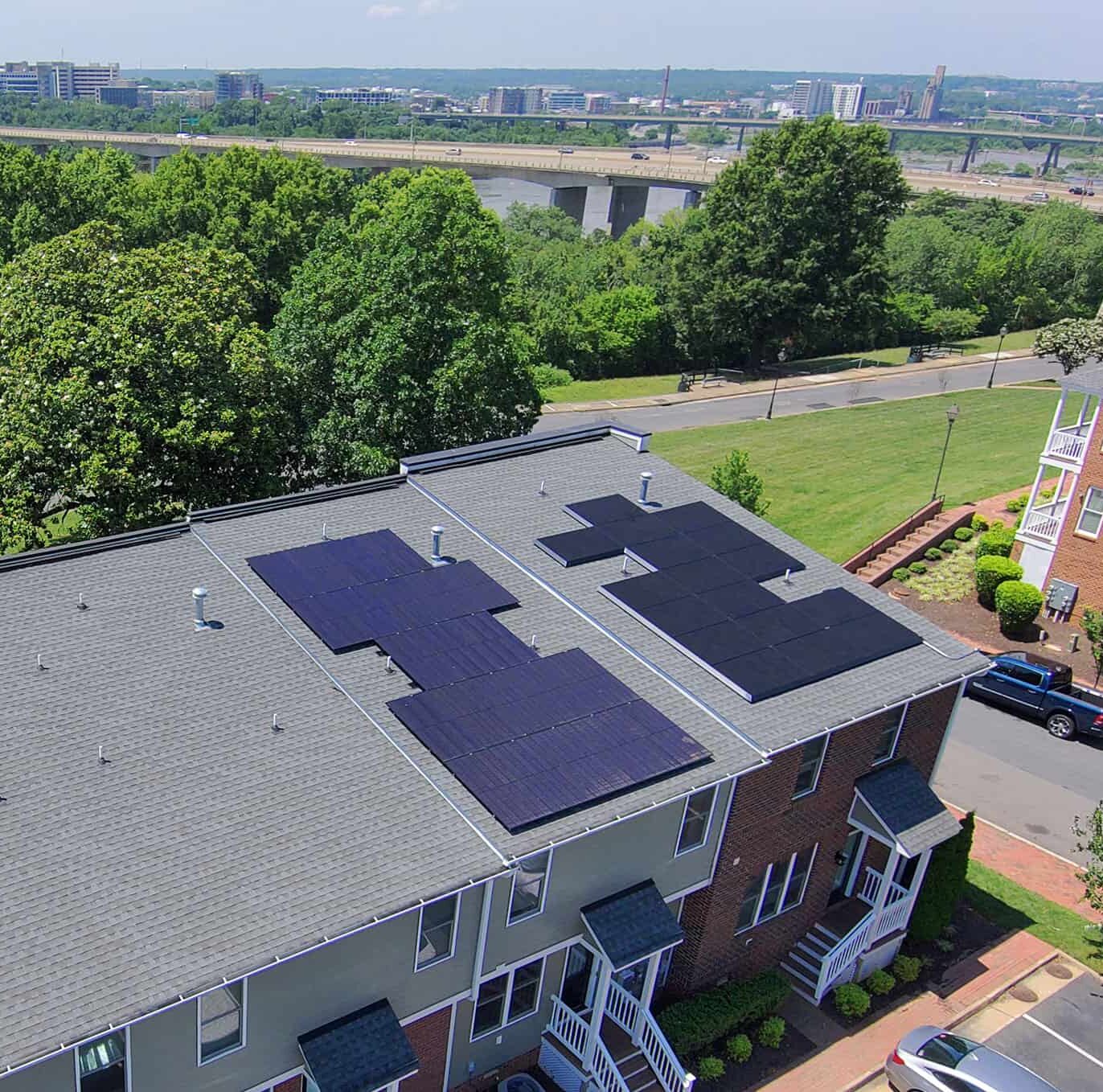How does efficiency factor into my solar panel system?
Like engines in cars, the panels and inverters you choose for your roof will determine how much energy your system produces for years to come. And while cars use jargon like horsepower, torque, and differential to define performance, the solar panel industry has a bunch of terminology that can often confuse more than clarify. That’s why we’re here to break things down for you!
Let’s start by looking at the big picture.
What is solar panel efficiency?
Solar panel efficiency is the percentage of sunlight a solar panel system can turn into usable electricity. This efficiency comes from both your solar panels and the inverters attached to those panels. The combination of high-efficiency solar panels and inverters can make a big difference in performance, reliability, and savings.
In a perfect world, 100% of the energy the sun sends to your panels would be turned into electricity. Of course, that’s only wishful thinking. As recently as 1995, most commercially available solar panels could at best generate a 5% efficiency. After decades of research and millions of dollars and man hours, efficiency standards have reached 15-20%. A few panels can eke out a few more percentage points, but there are diminishing returns as the cost for these panels don’t always pay off for the families who install them. It’s also important to remember that, while 20% efficiency may seem low, the energy is entirely free and carbon neutral. In fact, most fossil fuel power plants are only 60% efficient!
Ultimately, it’s a balancing act where the energy needs of a household, combined with other factors like useable roof space and sun exposure, must be factored in to ensure you’re paying for the performance you need and nothing more.
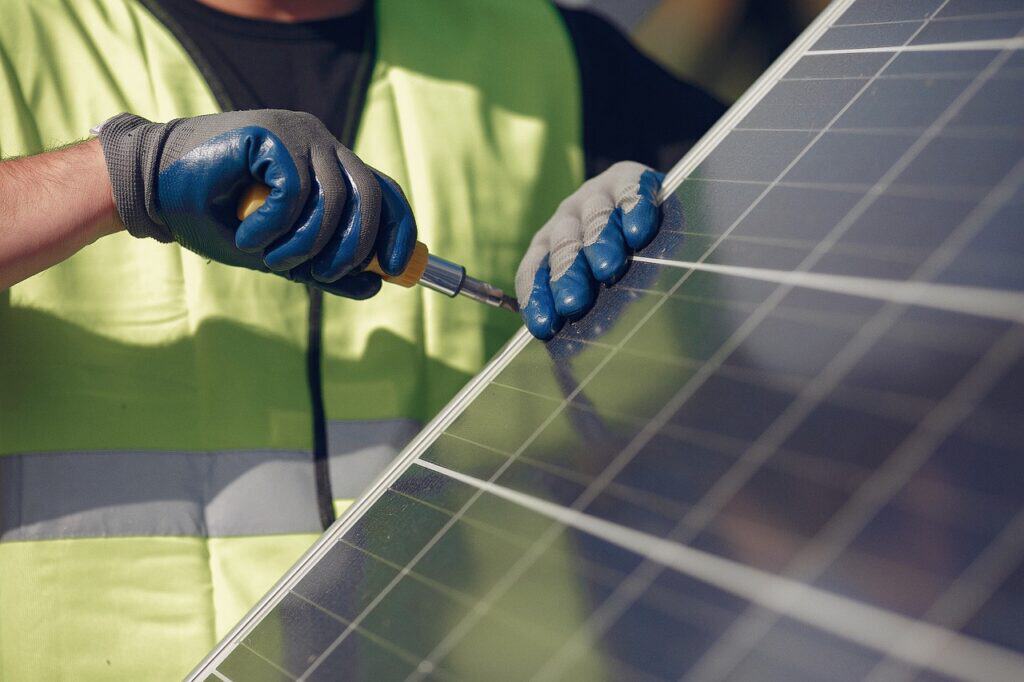
OK, so how do I get the right level of solar panel efficiency for my home?
The fundamentals of solar panels break down into three important factors:
- The material the panel is primarily made of
- The technology wrapped around the material that makes it work harder, and
- The cut (or design) of the materials and how they are spaced in a panel
1. Material
Solar panels come in three main varieties: monocrystalline, polycrystalline, and thin-film. These solar panels differ in terms of how they are constructed, how they look, how they function, and what types of installations they are best suited for.
While each panel type has advantages and drawbacks, Dominion Energy Solutions always recommends monocrystalline panels for residential roof in Virginia. These panels use a single, pure (or mono) silicon crystal whereas polycrystalline panels used silicon crystal shards that have been fused in a mold before being sliced into wafers.
The higher purity of silicon in monocrystalline panels make them more efficient than polycrystalline. They also take up less space for the same power output, so you get more bang for your buck.
2. Technology
Solar cells are usually built with two types of technologies: N-type and P-type. The N-type structure dates to 1954, but overtime P-type took over for most installations as it has greater radiation and degradation resistance.
Almost every panel on the residential market today is P-type, but technology advancements haven’t stopped there. Today, advanced technologies are added in to the panels to boost efficiency. One of the most common is Passivated Emitter Rear Cells (or PERCs). PERC technology adds a passive later [ACB(ESII41] to the rear of the solar cell which increases light capture and overall efficiency.
Another common technology is Heterojunction with Intrinsic Thin Layers (or HJTs). HJTs essentially add a thin film on top and behind monocrystalline layer. This sandwich of sorts captures more of the sun’s photons than the monocrystal would alone.
3. Cut (or Design)
Like dominoes, you can manufacture (or “design”) monocrystalline cells in several ways to tweak efficiency. The three most common are half cut, triple cut, and bifacial.
Half-cut solar cells are just that – solar cells cut in half. Laser cutters divide the cells in half resulting in greater performance, decreased energy loss, and improved performance in low-light situations. This is particularly important if your panels will experience shade during any part of the day.
Half-cut cells are now undergoing a design evolution in what is now being called triple cut or “tri-cut”. Lasers are, once again, deployed to cut cells into thirds resulting in even more efficiency.
Bifacial is an entirely different design from half- and tri-cut cells. This design allows the cell to generate power from both sides of the cell. This design is great for snowy regions or white rooftops where sun bouncing off the mounting surface hits the back of the panels. The result is more efficiency as photons are hitting the panels from two directions.
Why should I be thinking about inverters?
Panel efficiency is a big factor, but inverters – the hardware that turns DC current produced by cells into AC current used by your home – is just as important. Less waste in this process means more power for your home.
There are two primary types of inverters on the market: string inverters and microinverters.
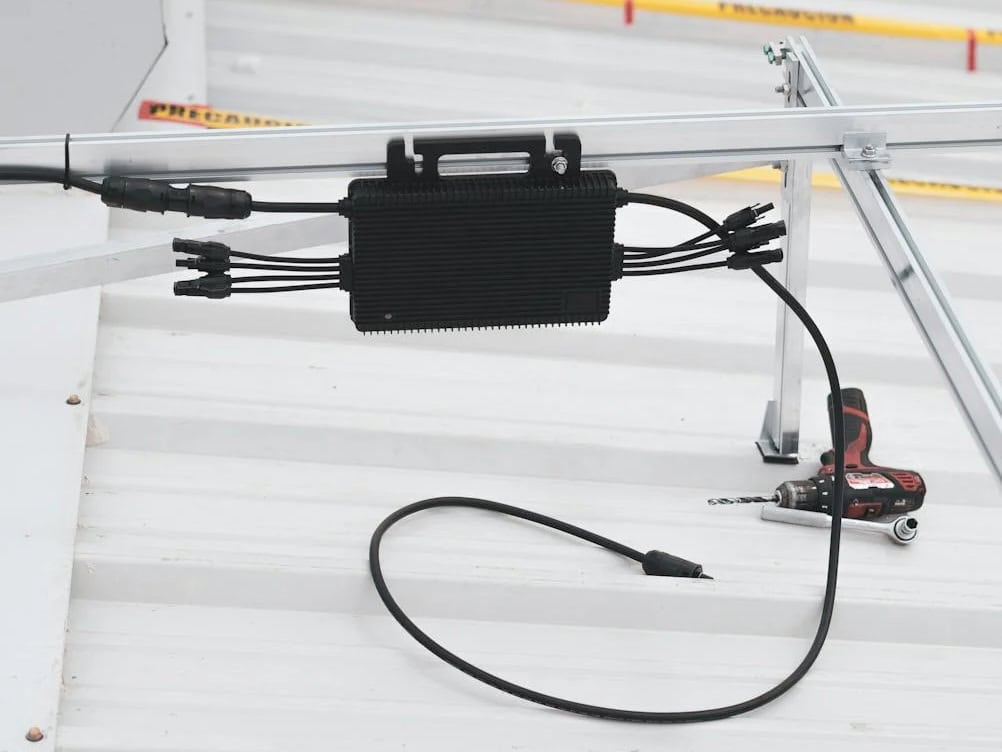
1. String Inverters
String inverters belong to the family of centralized inverters. These inverters connect multiple panels in series. This means that if one panel underperforms, the whole string performance drops. While string inverters are cost-effective, they are less efficient in systems where shading or panel mismatches are an issue. A single malfunctioning or shaded panel diminishes the output of the entire string since they are connected in series.
2. Microinverters
Microinverters are the gold standard for Dominion Energy Solutions. We favor these because they offer many advantages over string inverters. Microinverters are installed on each solar panel which ensures optimized performance individually, increasing overall system efficiency. Because each panel operates independently, even if one panel is shaded or dirty, you can still expect maximum efficiency and output.
Another great benefit of microinverters is that you can better monitor your system at the panel level (not just the system level). This allows for precise performance tracking and easier troubleshooting for optimal system operation.
So, what is the right combination of panels and inverters for my home?
It always comes down to a balancing act between cost effectiveness and efficiency. It would be fantastic if there was just one gold standard that worked for every home, but every home is different. That’s why Dominion Energy Solutions is here to help you make the right choice. We offer several options – all best in class – for homeowners in Virginia and take the time to explain why the system we’re proposing is best suited for your energy needs and budget.
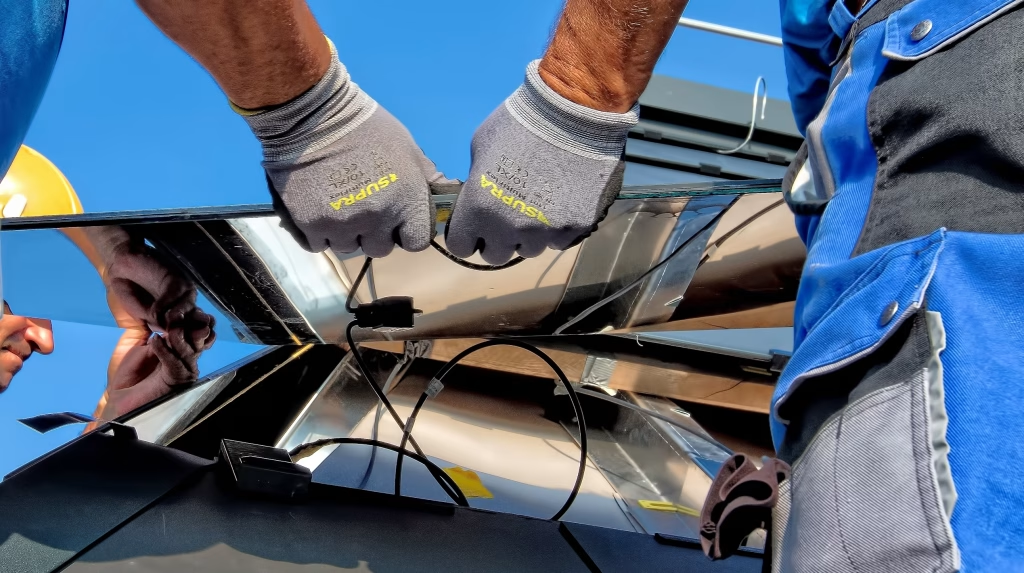
1. There is no one-size-fits-all. Just your-size-fits-you.
Dominion Energy Solutions wants you to make an educated decision on what products to install on your roof. We never force you to decide without first telling you the benefits of what panels and inverters we offer and take the time necessary to explain why they are the best options for your home
We understand that choosing a solar company can be tricky considering there are several solar panel inverter combinations out there. Which system you choose often depends on the solar installation company you use. However, regardless of your chosen partners, here are few things to consider when choosing a solar energy system.
2. Determine Your Energy Needs
What is your current, annual energy consumption? Will this change soon (i.e., are you about to buy an electric vehicle)? A professional energy audit can help you determine your energy needs and recommend the best system for your situation.
3. Get a Professional Consultation
Work with solar professionals to get customized recommendations based on your specific needs and location. Solar professionals can give you insights on system design, installation, and financing options so you can make an informed decision. Again, if they are pushing a one-size-fits-all scenario then, chances are, they’re not accounting for the specifics of your energy needs or home/roof dimensions.
4. Make Sure Installation and Maintenance are Warrantied
Choose a reputable installer with experience in high-efficiency systems and ask about maintenance services and warranties to protect your investment.
Why Choose a Dominion Energy Solutions?
Choosing the right solar installation service can make or break your solar project resulting in unexpected costs and delays. Dominion Energy Solutions and our vetted installers bring a proven track record for quality construction and installation.

Expertise
All Dominion Energy installers are certified with the North American Board of Certified Energy Practitioners (NABCEP) Solar PV Installation Professional Certification, the gold standard for PV professionals in the renewable energy industry. This ensures all our installers have gone through rigorous training in designing, installing, and maintaining ground mount and rooftop PV systems in both residential and commercial solar projects.
Licensed and Insured
Rest easy knowing your solar installation is handled by professionals who are fully licensed and insured in Virginia. We adhere to the highest industry standards, ensuring a safe, reliable, and compliant installation process every step of the way. Our comprehensive insurance coverage protects you and your property, providing peace of mind throughout the entire project. With our commitment to quality and safety, you can trust that your investment in solar energy is secure.
Experience
This extensive portfolio of satisfied customers across the state speaks volumes about our dedication to excellence and customer satisfaction. We pride ourselves on completing projects on time and within budget while maintaining the highest standards of workmanship. Our reputation for reliability and performance makes us a trusted partner in your transition to clean, renewable energy. And, if you are worried about your solar investment cost going sky-high, check out how we use incentives to reduce the cost of solar systems.
Whether you are looking to reduce your carbon footprint, save on energy costs, or increase your property’s value, our ground-mount solar installations provide the flexibility, efficiency, and durability you need. Let us help you take the next step towards a sustainable future with solar energy tailored to your specific needs and location.
Book a free consultation with our Energy Advisors today!

